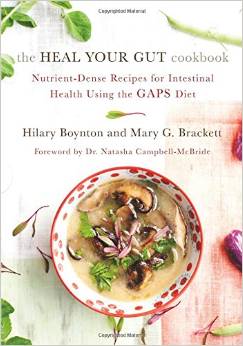Wonder about the Causes of Your Recurring UTI?!
This is a guest post by Joanie Blaxter, founder of Follow Your Gut, but first a disclaimer: neither Joanie nor I are health professionals, use what you read here as part of your own research and then consult with a natural doc or health professional you trust to find what is best and right for YOU. Read my entire disclaimer here, and also note that there may be affiliate links in this post.
Want to avoid a Urinary Tract Infection (UTI) that can't be cured? Don't eat conventionally raised chicken.
The Center for Disease Control (CDC) issued a warning in 2012 that we have an epidemic of incurable UTI's in this country, particularly amongst women. These UTI's are not cured by antibiotics. They simply keep reoccurring, potentially for a lifetime.
From David Gumpert's Comments Section dated 7/19/2012 in The Complete Patient:
There is a scandal brewing over millions of urinary tract infections in women that can't be cured because they were caused by antibiotic-resistant pathogens.
“Authorities have known for years that half or more of all chickens are contaminated, and did nothing about the problem. (emphasis mine)
“Now that it turns out the infections can't be treated…well…big problem. I supposed the excuse will be that the regulators were too busy ridding the country of raw milk.”
Ugh. Makes me cross my legs and squirm just to think about it!
I can tell you as a person who has worked as a vitamin specialist on the supplements aisle at a natural foods store for the last six years, I have NO TROUBLE believing in this UTI epidemic! Almost daily I met women trying avoid yet another round of antibiotics by seeking nutritional support for their cyclic bladder infections.
But how could a urinary tract infection be “incurable?”
The CDC traced the specific strain of pathogen causing this epidemic directly back to commercially raised chicken. The antibiotics in their feed have created a ‘superbug' E. coli which does not respond to antibiotics. Hence, once the contaminated chicken is eaten, these urinary infections simply come and go periodically, but are potentially never entirely cleared from the body.
Ever seen a large-scale, industrial, poultry facility? I call them “Hen Auschwitz.” It's no wonder these warehoused birds have become a breeding ground for antibiotic resistant E. coli. The filthy, crowded, living conditions inside those buildings would make any animal sick. No surprise these birds must be artificially propped up with antibiotics.
See that picture above? That's what we buy when we purchase “cage-free” or “free-range.” And THAT, my friends, is actually a step up from facilities with birds in cages.
This is why what you want on the label when you buy eggs or chicken meat is “pasture raised.” You want your food to have been raised naturally, outdoors with access to organic feed, bugs, grass and sunshine. I always buy my eggs and chicken direct from my farmer. (Don't have a safe source of meat locally? Find safe, healthy meat online here.)
The GOOD NEWS is…
…that Tyson, Perdue and McDonald's have all recently announced their intention to reduce the amount of antibiotics used in the raising of their chicken. Before you jump up and down, though, none of the corporations are intending to eliminate antibiotics altogether, only to phase out those antibiotics prescribed for humans. Animal-only antibiotics will remain in use.
Personally, I'm still on wait-and-see mode since any kind of antibiotic will encourage the creation of ‘superbugs.' Also, this change in policy comes too late for the millions of women who already have chronic infections.
Besides, from my perspective as an eater, there has been no attempt to address the real underlying problem: the factory farm model.
When you raise animals in unnatural conditions and feed them an unnatural diet, those animals will always have health problems. Period. You want healthy animals? It's just like kids! You gotta raise 'em right!
According to the CDC, this country already had an “epidemic” of these “incurable” infections by 2012. And yet how much media coverage did you hear over the last three years as a result, warning you to not purchase factory farm chicken? $$$$$$$$????????!!!!!!!!!!!!!! Yeah, that's how much I heard too. Like zippo.
So why has conventionally raised chicken as a source of public health contamination over the last several years remained a virtual secret to the American public?
According to information collected by the Food and Water Watch, from 1997-2007, the number of large-scale, factory farms increased all over this country, thanks to new subsidies and loosened regulations from both the federal and state governments. Clearly, the political “GO!” flag was dropped in the mid-90's and, subsequently, an enormous amount of tax-payer money was funneled into the giant CAFO (concentrated animal feeding operations) model.
During that ten-year period, the increased number and size of CAFO's meant production for meat chicken jumped by 87% (egg-layers 24%, hogs 36%, dairy cows 93%). Find out more about industrial animal production facilities near you with Food and Water Watch's Factory Farm Map.
With that much new money invested into infrastructure for the industrial animal food production model, do you think the government would then turn around and broadcast to the public…?
“Oops, we made a giant, factory farm mistake! These facilities have turned out to be breeding grounds for a nationwide, incurable epidemic and are a national health hazard.”
Nooooooooooo… not gonna happen! We “chicks” have to stick together and educate each other 🙂
If half or more of all commercial chicken for years has been contaminated with antibiotic-resistant pathogens, why doesn't EVERYONE have a UTI?
In my opinion, it's likely that what isn't killed by cooking is destroyed by the probiotic bacteria in our gut. It's the same reason that, when authorities issue a recall of contaminated food, not everyone who eats it, only some, get ill from it.
Much of our immune resistance depends on the health of our individual microbiome.
Keep in mind that with approximately 80-85% of our immune system embedded in our intestinal walls, the strength of our immunity is directly dependent on the quantity, potency and proportion of the microflora in our gut.
So I don't think it's overkill to say “Consume your live, fermented foods and raw milk daily. Your life may depend on it!”
Remember, fermented food is far and away the most natural and least expensive immune support! Dr. Mercola had his team of technicians test all the top brands of probiotic supplements and they found that live, fermented foods are approximately 100x more potent than the pills! In fact, one teaspoon of say, a live, homemade sauerkraut was comparable to an entire bottle of the pills.
And a good, lacto-fermented food (kefir soda, vegetables, yogurt, milk kefir, etc.) is easy to make at home and literally can cost pennies!
You can read all about raw milk here.
 Suggestions for beginners:
Suggestions for beginners:
- Just the way our ancestors did it before the arrival of refrigeration: Wild Fermentation Method
- See Kelly's post: Why to Make Milk Kefir
- I also love the book on the right, The Heal Your Gut Cookbook
Want to raise consciousness about this problem as well as help create new markets for pasture-raised chicken?
Be sure to ask your wait person if the chicken on the menu is raised commercially or outdoors in pasture. Explain that you're asking because you want to avoid a UTI, and that the Center for Disease Control has said the superstrains of bacteria created by antibiotics in feed have already caused millions of cases that can't be cured.
Ask that the information please be passed on to the chef. Then order wild caught salmon! 🙂
Other Resource: Factory-Farmed Chicken May Be Cheap, But the Ultimate Price You Pay Is High
And after reading that, you may need a ‘light and lively,' see Colin the Chicken for yucks:
Pass the word on to every chicken-lovin' woman you know, we watch out here for our sistas! Have you had any experience clearing up a UTI by using fermented foods or probiotics? Or, by any other natural means? Tell us about your successes!
This w as a guest post by my sweet friend, Joanie Blaxter, who is now a regular writer around here! She’s been the Ventura County, California chapter leader of the Weston A. Price Foundation since 2010, and you can contact Joanie here for health consultations. Also, find her past guest posts here.
as a guest post by my sweet friend, Joanie Blaxter, who is now a regular writer around here! She’s been the Ventura County, California chapter leader of the Weston A. Price Foundation since 2010, and you can contact Joanie here for health consultations. Also, find her past guest posts here.




Sheryl Senkiw says
This is an important article. Thank you. Is it from 2015? If so, have there been any changes?
Bailey says
Hi Sheryl, there have been some changes but from prior to this article being written .
antibiotic use is on its way out especially in the broiler industry. The USDA has a program within the Food Safety Inspection Service (FSIS) called the residue program. If you look through there you will find reports of farms that violated this program, meaning that the farm administered antibiotics or another banned substance during the mandate withdraw period prior to slaughter. They list the specific residue used and even the address of the farm that was in violation.
Now to alternatives to antibiotics. The industry has started researching different alternatives to antibiotics such as organic acids, probiotics, and vaccines. For example, my thesis is on an oral vaccine for Salmonella enteria Enteritidis but might have cross reactivity towards other serovars that have been causing food borne illnesses.
Circling back on something else mentioned in the article. While poultry carcasses can be contaminated and end up in markets for consumers to eat, the poultry industry is actually pretty good at preventing this. With the implementation of HACCP in the 1990s, all carcasses are examined at two different sections on the processing line. The first following evisceration where USDA veterinarians examine the viscera for breakage and these carcasses are condemned. The second is following the chilling, the end of the line for most processing plants. The chilling portion of this uses a reverse flow technique so that the cleanest water is found at the end of the chilling tanks and reduces the risk of contamination even further. If one carcass in this section is found to be contaminated, all the carcasses in that chill tank are condemned.
I could go further on about how the superbugs mentioned in this article are due to overuse of antibiotics in humans and not poultry but this isn’t related to my research so I can’t fully confirm or deny that.
Jennifer says
Very enlightening article. I’ve been suffering from recurrent UTI’s over the past 2 years. Before that I hardly got them at all. I’m wondering if there’s a poultry link? Is it best to get your eggs from farm raised chickens? I eat one egg/day. Usually boiled or over hard.
Joanie Rocks says
Hi Jennifer,
I believe animals raised naturally are much healthier than ones raised in giant confinement warehouses that breed infections. So, yes, I would encourage you to purchase your animal food directly from a farmer you trust. Try the suggestions that people are listing here in the comments section. Also, go to your local natural foods store and ask the vitamin aislestaff person there for help with products for UTI’s.
TH Hernandez says
I realized one Friday afternoon that I had problem – bladder seizures, burning, etc. It was too late to find a doctor. The weekend had started. So I began to drink organic cranberry juice (72 oz over 3 days) and applied cypress and juniper essential oils to my lower abdomen every hour or so for the rest of the evening. If I hadn’t gotten up the next morning and spent 4 hours in the car, I would have been totally over it by Noon on Saturday. As it was, I was all good by Sunday. The cost of the treatment was $12 for the juice and about $10 of essential oils.
Joanie Rocks says
Great suggestions! Had not heard about cypress and juniper oils. Another tool in my tool chest. Thank you!
Tiana says
My daughter from age 2 to 3 was getting them frequently, every month or two… I cut out eggs out of her diet and hasn’t had to go into emergency since
tedhutchinson says
But it would be better if your daughter (and all your family) had functioning immune systems that enabled them to upregulate the 200+ natural antimicrobial peptides human DNA evolved to use before we invented antibiotics. Our DNA evolved near the equator where sunlight (vitamin D3 production) ensured vitamin D3 levels around 50ng/ml 125nmol/l throughout the year. Using 1000iu/daily for each 25lbs weight would ensure you were all able to naturally fight infections of whatever kind, rather than have to avoid the most nutritious foods to avoid the potential bugs they may contain.
Joanie Rocks says
Hi Tiana,
Yes, (cooked) eggs are #2 on the allergen list, right after pasteurized dairy. Sounds like your daughter was having a low level allergenic reaction to eggs and when you removed them, it gave her immune system just enough relief that it was able to finally effectively eliminate the bacteria causing her UTI.
You might want to get her checked for other food allergies as well as check out the Gut and Psychology Syndrome diet or possibly, the AutoImmune Pale0o diet. Both protocols are very supportive to the immune system.
tedhutchinson says
Because I have to insert a plastic pipe to empty my bladder I was very prone to repeat UTI and having to frequently resort to antibiotics it wasn’t long before the UTI became antibiotic resitant and harder to clear.
I found raising my Vitamin D3 intake so my 25(OH)D stayed at or above 50ng/ml 125nmol/l I was able to naturally resist infection and since then, although of course my bladder still has to be emptied with a pipe, I have remained UTI free. The research I relied on was from Zasloff M and if you search pubmed for his name and Vitamin D, antimicrobial peptides you’ll find lots of supporting evidence.
The cost of adequate vitamin D3 to keep vitamin D levels high enought to upregulate 200+antimicrobial peptides is minimal and has other health benefits apart from the improvement in immune function.
Joanie Rocks says
Thank you Ted! Yes, vitamin D deficiencies frequently show up as immune system dysfunctions. Great suggestion!
Nora says
Wow, this explains it! I haven’t had a UTI in 10 years, but recently started eating chicken when we go out to eat (previously ate seafood and we only eat organic at home). Both my 4 year old daughter and I got UTI’s at the same time. I used echinacea and supertonic (garlic, onion, horseradish, cayenne, ginger in ACV) tinctures and it was gone in a couple days. I used probiotics, lemonaide (lemons, water, stevia), Sambucol, and cut out sugar to help my daughter.
Michele says
I’ve used parsley tea with raw honey and lemons to cure a UTI. I do seem to have a recurring issue. The last time though, I felt one coming and took one of my probiotic capsules. It never came. Liz, that is so cool that you’re doing this with your chickens! I have a friend who will buy some chicks and raise them on her farm for me and a few other friends. I’m so excited.. I can’t wait to finally buy some real, pastured chickens! So good on you, girlie! 😀
Noelle says
So glad to finally find an answer as to “why”! A year ago I had an incurable UTI that 3 rounds of different antibiotics couldn’t cure and tore up my stomach instead and no dr could figure out why or what to really do about it and tried to blame it on soaps that I don’t use! I then tried colloidal silver, fermented foods, d-mannose, cut sugar, and added probiotics and it finally cured and hasn’t been back. We can’t always buy pastured chicken, so sad that this what it’s come to and why we’re getting sick 🙁
Joanie Rocks says
Thank you for sharing Noelle and letting us know about what worked for you. Support your immune system as much as possible and keep sharing!
L.S. says
D mannose (non synthetic ) will attach to E.coli and then flush right out of your body. The dose may need to be much higher than the direction says. I think 1/2 tsp every 2 or 3 hours until you are clean for a few days. It can be taken as a preventative also. It only works on E.coli.
Joanie Blaxter says
Go Liz!!! Send this article to your customers to remind them too. As a pastured poultry farmer, you are the next generation’s rock star!
Liz says
Nice, we just sold our first batch of pastured poultry this week to local Idaho customers, so it’s good timing to read this article to remind myself (through all the loss of chickens raising them on pasture) that they are much better than the confinement chickens!